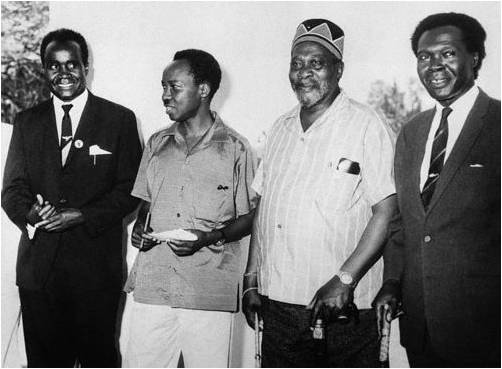Steps taken by african countries to fight Neo-colonialism



African countries are trying to integrate their economies by ensuring the inter‑relationship of all the economic sectors in the economy. The idea is to attain self-sufficiency and keep off from neo colonialism for example Libya, Ghana.
The East and Central African states have formed integration in the COMESA. West African countries formed the ECOWAS in 1975. This was done to run away from depending on western powers like USA, France, Britain and Germany in marketing their goods.
Some African countries have taken steps to industrialize for Nigeria, Kenya, and Uganda. They have attempted to build machine making industries instead of processing plants which the colonial masters build to blindfold the Africans.
 Some African
leaders and scholars like Kwame Nkrumah,
Oginga Odinga, Julius Nyerere wrote and published books against
neo-colonialism. They suggested several ways of doing away with neo-colonialism.
Some African
leaders and scholars like Kwame Nkrumah,
Oginga Odinga, Julius Nyerere wrote and published books against
neo-colonialism. They suggested several ways of doing away with neo-colonialism.
 Changing the
educational curriculum to promote national consciousness and patriotism. The
case of Education for self-reliance as advocated by Nyerere in Tanzania is a
good example.
Changing the
educational curriculum to promote national consciousness and patriotism. The
case of Education for self-reliance as advocated by Nyerere in Tanzania is a
good example.

Through the United Nations Organisation, African countries have attacked the promoters of Neo-colonialism.
Formation of the Non Aligned Movement for the third world countries only is yet another step in the process of fighting Neo colonialism.
Creation of African development bank to reduce on dependence on foreign lenders who are exploiters.
African countries have formed the OAU with the aim of creating a bargaining power against the exploitative tendencies of developed countries.
Some African countries have diversified their economies especially in Agriculture with the intention of becoming self reliant to some extent.
 PRESIDENT IDI
AMIN is carried by four Britons into official reception on a makeshift throne.
It was Amin's idea, to show new white mans burden in Africa, and also to try
and improve relations between Britain and Uganda.
PRESIDENT IDI
AMIN is carried by four Britons into official reception on a makeshift throne.
It was Amin's idea, to show new white mans burden in Africa, and also to try
and improve relations between Britain and Uganda.
Some countries took up the nationalisation policy so that the government took up all the enterprises owned by foreigners. In Uganda, Obote nationalised all the foreign owned companies in 1969. Idi Amin expelled them in 1972.
Protecting infant industries and export promotion strategies,
Introducing poverty eradication programmes.
Academic condemnation of neo colonialism
Infrastractural development.
Discouraging the borrowing syndrome.
Establishing import substitution industries.
Encouraging African cultural rejuvenation through sports activities.

Direct involvement of African leaders in the wars that have removed strong promoter of neo colonialism for example president Museveni of Uganda since 1986 has played a great in getting rid of African dictators so he supported armed groups that removed the late Mobutu Sseseko from power in 1997.
National Movements and New States in Africa